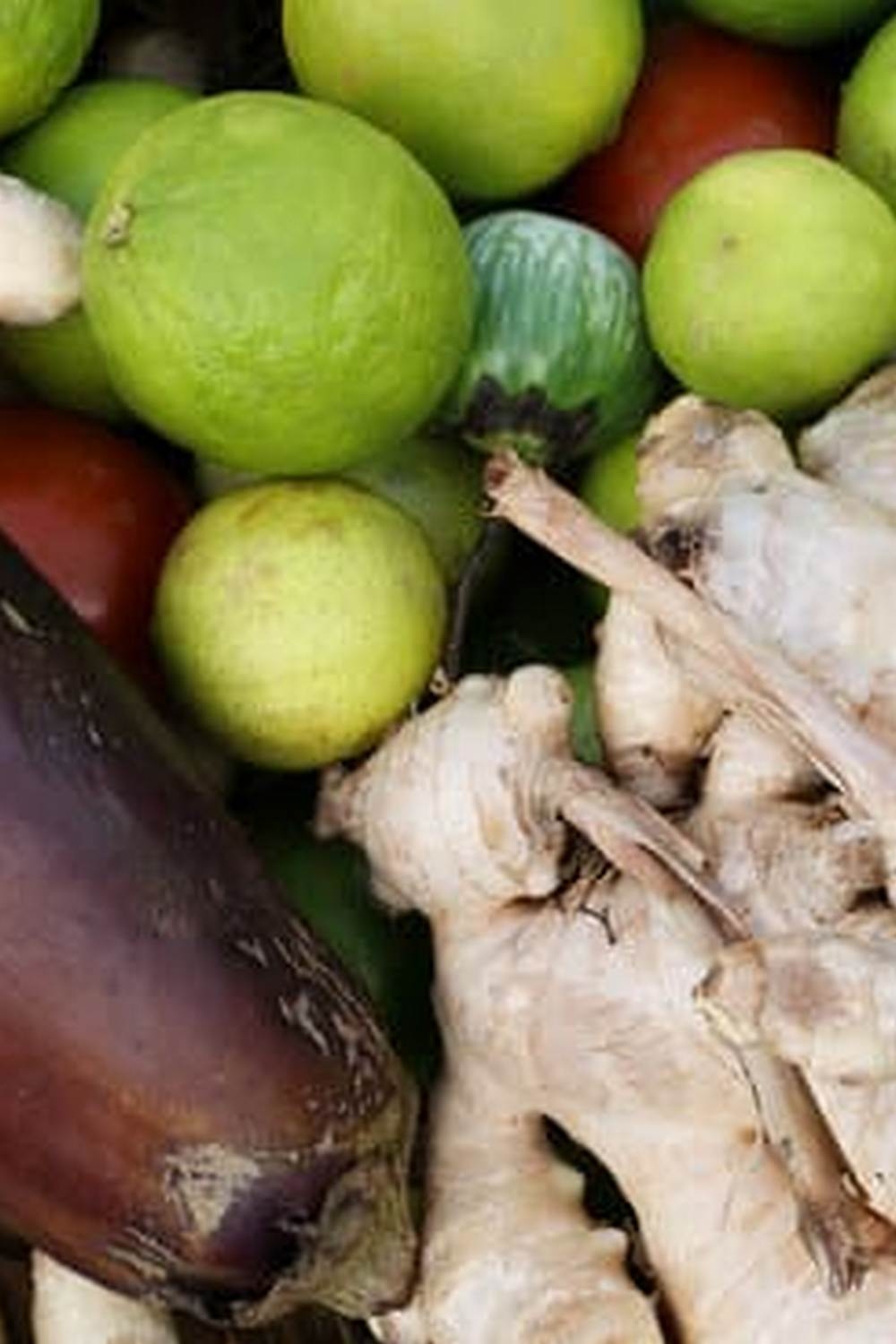Organic compost for vegetable gardens is a vital element in maintaining healthy plants and soil. Unlike synthetic fertilizers, organic compost provides essential nutrients while improving soil structure and promoting microbial activity. This natural approach not only benefits the plants but also helps maintain the overall health of the garden ecosystem.
When it comes to choosing the right type of organic compost for your vegetable garden, there are various options available. From traditional kitchen scraps to specialized compost mixes, selecting the best compost for your specific garden needs is crucial for optimal growth and harvest. Understanding the different types of organic compost and how they can benefit your plants will lead to a more successful gardening experience.
For those interested in making their own organic compost at home, a step-by-step guide can provide valuable insights into creating a nutrient-rich mixture for their vegetable garden. Maintaining a healthy compost pile through proper turning and watering techniques is essential to ensure a consistent supply of organic matter for your plants. By learning how to make and use organic compost effectively, gardeners can enhance the vitality of their vegetable gardens while practicing sustainability in their gardening practices.
Types of Organic Compost
Organic compost is a vital component for the health and productivity of vegetable gardens. With its rich nutrients and ability to improve soil structure, organic compost supports plant growth, increases water retention, and promotes beneficial microbial activity in the soil. Choosing the right type of organic compost for your specific garden needs is essential for achieving optimal results.
Types of Organic Compost Suitable for Vegetable Gardens
There are various types of organic compost available that are suitable for vegetable gardens, including manure-based compost, leaf mold compost, kitchen scraps compost, and worm castings. Manure-based compost provides high levels of nitrogen, essential for leafy green vegetables like spinach and lettuce. Leaf mold compost is ideal for root vegetables such as carrots and beets due to its ability to improve soil structure and drainage.
Kitchen scraps compost is a great way to recycle food waste while adding nutrients to your garden soil. Worm castings are a nutrient-rich type of compost that enhances soil fertility and encourages robust plant growth.
How to Choose the Right Compost for Your Specific Garden Needs
When selecting organic compost for your vegetable garden, consider factors such as the nutrient content, pH level, texture, and application method. Conduct a soil test to determine any deficiencies in your garden soil and choose a compost that will address those specific needs. Look for organic certification or sources that ensure the quality and purity of the compost.
Consider the type of vegetables you plan to grow and their specific requirements when selecting the right compost. By choosing the appropriate organic compost tailored to your garden’s needs, you can ensure healthy plant growth and bountiful yields throughout the growing season.
Making Your Own Organic Compost
To start making your own organic compost, designate a spot in your backyard for a compost pile or set up a compost bin. Make sure the location has good drainage and receives partial sunlight. Begin by adding a layer of brown material as the base, followed by green material on top.
Keep adding layers in alternating fashion, making sure to water the pile occasionally to maintain moisture levels. Turning the pile regularly will help aerate the compost and speed up the decomposition process.
As the organic materials break down, beneficial microorganisms will work to transform them into rich humus that is full of essential nutrients for your vegetable plants. To maintain a healthy compost pile, avoid adding meat, dairy products, or oily foods that can attract pests and slow down decomposition.
Also, be mindful of the carbon-to-nitrogen ratio in your compost pile to ensure proper breakdown of materials. Making your own organic compost is not only rewarding but also an environmentally-friendly way to nourish your vegetable garden without relying on synthetic fertilizers.
Purchasing Organic Compost
When it comes to purchasing organic compost for vegetable gardens, there are a few key factors to consider to ensure that you are getting the best quality product for your plants. One important aspect to look for when buying pre-made organic compost is the ingredients used in its production.
Ideally, the compost should contain a mix of different organic materials such as kitchen scraps, yard waste, and manure. This variety will provide a well-balanced mix of nutrients for your vegetable garden.
In addition to ingredients, it is essential to pay attention to the composting process itself. Look for compost that has undergone proper decomposition, resulting in a dark, crumbly texture. Avoid compost that still contains visible pieces of undecomposed material as it may not be fully broken down and could contribute to nutrient imbalances in your soil. Be sure to check the packaging or ask the supplier about the maturity of the compost before making a purchase.
Furthermore, consider the source of the organic compost you are buying. If possible, choose compost that is locally sourced to support sustainability and reduce carbon emissions from transportation. Local compost also tends to be more adapted to your region’s soil and climate conditions, ensuring better compatibility with your vegetable garden. By paying attention to these factors when purchasing organic compost, you can set your vegetables up for success with nutrient-rich soil and healthy growth.
| Key Factors | Considerations |
|---|---|
| Ingredients | Look for a mix of organic materials |
| Texture | Check for dark, crumbly consistency |
| Source | Prefer locally sourced compost |
Applying Organic Compost
When it comes to nurturing a healthy and thriving vegetable garden, the use of organic compost is essential. Organic compost for vegetable gardens provides numerous benefits that contribute to the overall health of plants and soil.
Unlike synthetic fertilizers, organic compost is rich in nutrients, improves soil structure, enhances water retention, and promotes beneficial microorganisms in the soil. This natural form of fertilizer also helps reduce the risk of chemical runoff into water sources, making it a more environmentally friendly option for gardening.
There are various types of organic compost suitable for vegetable gardens, each offering unique benefits based on their composition. For instance, compost made from kitchen scraps and yard waste provides a balanced mix of nutrients ideal for vegetable plants.
On the other hand, mushroom compost is high in phosphorus and potassium, making it an excellent choice for flowering vegetables like tomatoes or peppers. When choosing the right organic compost for your garden, consider factors such as nutrient content, pH level, and any special requirements of your specific plant varieties.
Applying organic compost to your vegetable garden is a straightforward process that can greatly enhance plant growth and productivity. Best practices for adding compost include spreading a layer of organic material over the soil surface before planting or mixing it into existing soil for established plants.
It is recommended to apply organic compost at least once or twice a year to ensure a continuous supply of nutrients for your vegetables. By following proper application techniques and incorporating organic compost regularly into your gardening routine, you can create a thriving ecosystem that supports healthy plant growth and abundant harvests.
Composting Dos and Don’ts
Common Mistakes to Avoid When Composting
When it comes to composting, there are some common mistakes that gardeners often make that can hinder the process or even create more harm than good. One of the most common mistakes is not maintaining a proper balance of green and brown materials in the compost pile. Green materials such as vegetable scraps provide nitrogen, while brown materials like leaves or straw provide carbon. It is essential to have a good mix of both to ensure a healthy decomposition process.
Another mistake to avoid is adding meat, dairy, or oily foods to the compost pile. These items can attract unwanted pests and create unpleasant odors in the compost. It’s also important not to include pet waste or treated wood products in your organic compost for vegetable gardens, as they can introduce harmful pathogens into your soil.
How to Troubleshoot Common Composting Issues
If you encounter issues with your compost pile, such as a foul odor, excessive moisture, or slow decomposition, there are ways to troubleshoot and address these problems. If your compost pile smells bad, it may be too wet or contain too many nitrogen-rich materials. To correct this issue, add more brown materials like dried leaves or sawdust and turn the pile regularly to aerate it.
For excessive moisture in your compost pile, adding more brown materials can help absorb some of the extra water and improve airflow. Turning the pile frequently will also help prevent anaerobic conditions that lead to soggy compost. If you notice that decomposition is happening slowly, check the size of the materials in your pile – smaller pieces will break down faster. You can also introduce earthworms to speed up decomposition and enhance nutrient availability.
The Importance of Proper Airflow and Moisture Levels
Proper airflow and moisture levels are essential for successful composting. Without enough oxygen (through proper turning), anaerobic bacteria thrive and produce foul-smelling byproducts that slow down decomposition. Keeping your compost pile aerated by turning it regularly will promote aerobic conditions where beneficial bacteria break down organic matter efficiently.
In addition to airflow, maintaining adequate moisture levels is crucial for microbial activity in your organic compost for vegetable gardens. The ideal moisture content should resemble a damp sponge – not too wet where water pools at the bottom but moist enough that you can squeeze out a few drops of water from a handful of compost material. Regularly monitoring and adjusting moisture levels will ensure that your compost remains active and breaks down effectively.
Organic Compost Tea
Here are some steps on how to make organic compost tea at home:
- Start by filling a bucket with water, preferably non-chlorinated water like rainwater.
- Place a mesh bag filled with compost into the bucket, ensuring that the water covers the compost completely.
- Let it steep for around 24-48 hours, stirring occasionally to aerate the mixture.
- After steeping, remove the compost bag and pour the liquid into a watering can or sprayer for application to your vegetable garden.
Using organic compost tea can enhance soil fertility and plant growth while also reducing the need for chemical fertilizers. It is a cost-effective and environmentally friendly way to feed your plants with essential nutrients, ultimately leading to healthier and more abundant harvests. Gardeners have reported improved soil health, pest resistance, and increased crop yields after incorporating organic compost tea into their gardening practices.
To apply organic compost tea effectively in your vegetable garden, it is recommended to use it as a foliar spray or soil drench. Apply the tea during periods of active plant growth for optimal results. Remember not to overuse compost tea as excessive application can lead to nutrient imbalances in the soil. By incorporating this natural solution into your gardening routine, you can promote sustainable gardening practices and achieve thriving vegetable plants without relying on synthetic chemicals.
Success Stories
Organic compost for vegetable gardens has proven to be a game-changer for many gardeners, leading to healthier and more productive plants. These success stories are a testament to the effectiveness of using organic compost over synthetic fertilizers. By incorporating organic compost into their gardening practices, these individuals have witnessed firsthand the numerous benefits that come with this natural soil amendment.
Here are some real-life examples of vegetable gardens thriving with the use of organic compost:
- Avid gardener, Sarah, shared her experience of transforming her lackluster vegetable garden into a bountiful oasis by switching to organic compost. She noticed an increase in plant growth and overall health, with vibrant fruits and vegetables that were bursting with flavor.
- John, a first-time gardener, was amazed at how quickly his vegetables flourished after he started using organic compost for his garden beds. Not only did his plants grow faster, but they also showed increased resistance to pests and diseases.
- The Smith family saw a significant improvement in their vegetable garden’s yield after incorporating homemade organic compost into their gardening routine. They were able to harvest an abundance of fresh produce throughout the season without the need for chemical fertilizers.
These success stories serve as inspiration for other gardeners looking to elevate their gardening game with the use of organic compost for vegetable gardens. With proper application and care, you too can achieve thriving plants and a bountiful harvest in your own backyard oasis.
Conclusion
In conclusion, it is evident that organic compost is a vital component for maintaining healthy and thriving vegetable gardens. The benefits of utilizing organic compost over synthetic fertilizers cannot be understated, as they provide essential nutrients to the soil while also improving its overall structure and water retention capabilities. By incorporating organic compost into your gardening routine, you are not only feeding your plants naturally but also promoting a more sustainable and eco-friendly approach to cultivation.
Whether you choose to make your own organic compost at home or opt to purchase pre-made compost from reputable sources, the key lies in understanding your garden’s specific needs and selecting the right type of compost accordingly. Additionally, knowing how to properly apply and maintain your compost pile is crucial for ensuring optimal results and preventing common issues that may arise during the composting process.
As you embark on your journey towards using organic compost for your vegetable garden, remember that patience and consistency are key virtues. By following best practices, avoiding common mistakes, and experimenting with methods such as compost tea, you can witness firsthand the transformative power of organic compost in cultivating a bountiful and flourishing garden.
So why wait any longer? Start integrating organic compost into your gardening routine today and reap the rewards of healthier plants, higher yields, and a greener environment.
Frequently Asked Questions
What’s the Best Organic Compost for Growing Vegetables?
When it comes to choosing the best organic compost for growing vegetables, it is essential to look for compost that is rich in nutrients, well-aged, and has a good balance of green and brown materials. Composts made from kitchen scraps, yard waste, and manure are ideal choices for vegetable gardens.
What Compost Is Best for a Vegetable Garden?
The best compost for a vegetable garden is one that is well-rotted, nutrient-rich, and has a good balance of carbon and nitrogen. Compost made from a variety of organic materials such as grass clippings, leaves, fruit and vegetable scraps, coffee grounds, and aged manure is optimal for providing essential nutrients to plants.
Can You Put Too Much Compost in a Vegetable Garden?
While compost is beneficial for enriching soil fertility and improving plant growth in a vegetable garden, it is possible to put too much compost. Excessive amounts of compost can lead to nutrient imbalances in the soil, hinder root development, and cause waterlogging issues. It’s important to follow guidelines and recommendations to avoid over-amending with compost.

If you’re looking to get into vegetable gardening, or are just looking for some tips on how to make your current garden better, then you’ve come to the right place! My name is Ethel and I have been gardening for years. In this blog, I’m going to share with you some of my best tips on how to create a successful vegetable garden.





